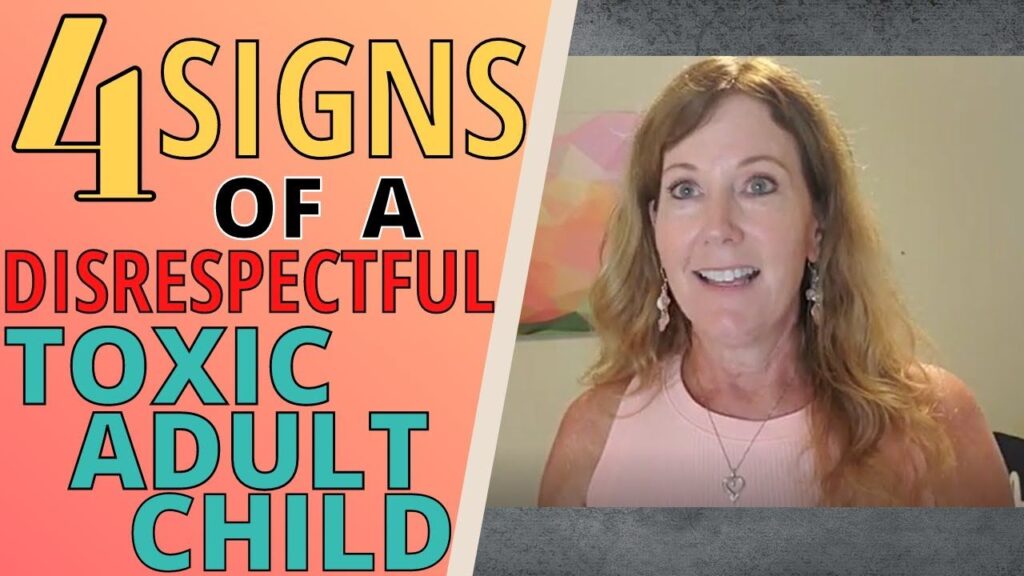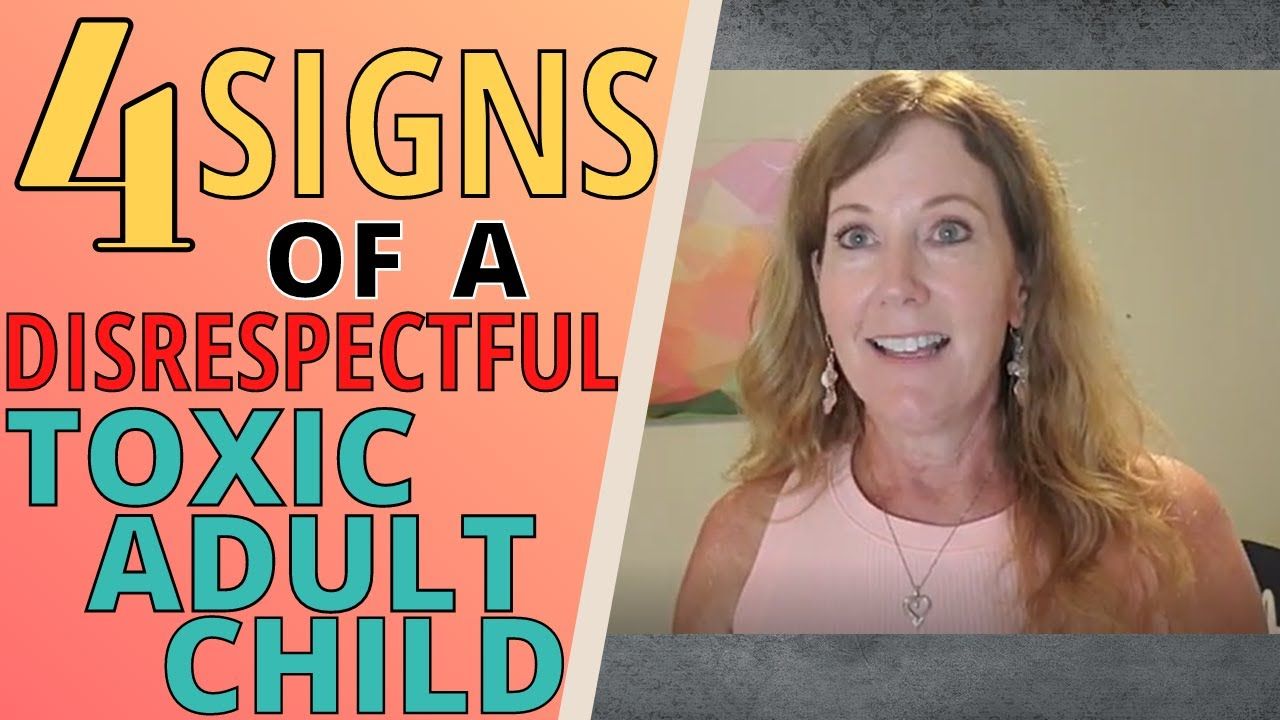
How to Deal With Disrespectful Adult Children: A Comprehensive Guide
Navigating the complexities of family dynamics can be challenging, especially when dealing with disrespectful adult children. The transition from parenting young children to interacting with grown offspring requires a shift in approach, and sometimes, the relationship can become strained. This guide provides insights and strategies on how to deal with disrespectful adult children, fostering healthier communication and setting boundaries for a more harmonious family life.
Understanding the Roots of Disrespect
Before addressing the disrespectful behavior, it’s crucial to understand its potential origins. Disrespect can stem from various factors, including unresolved childhood issues, differing values, financial dependence, or a lack of clear communication. Sometimes, disrespectful adult children may be acting out due to underlying emotional distress or unmet needs.
- Unresolved Childhood Issues: Past conflicts or perceived injustices can resurface in adulthood, leading to resentment and disrespectful behavior.
- Differing Values: Generational differences in values and beliefs can create friction and lead to disagreements that escalate into disrespect.
- Financial Dependence: Adult children who are financially dependent on their parents may feel entitled or resentful, leading to disrespectful behavior as a way to assert their independence.
- Lack of Clear Communication: Poor communication patterns established earlier in life can continue into adulthood, making it difficult to address issues constructively.
Recognizing Disrespectful Behavior
Disrespect can manifest in various ways, from subtle digs to outright hostility. Identifying these behaviors is the first step in addressing them effectively. Examples of disrespectful adult children’s behavior include:
- Verbal Abuse: Yelling, name-calling, or using offensive language.
- Ignoring Boundaries: Disregarding personal space, privacy, or requests.
- Passive-Aggressiveness: Making sarcastic remarks, giving the silent treatment, or undermining authority.
- Entitlement: Expecting special treatment or demanding favors without showing gratitude.
- Blaming: Shifting responsibility for their actions onto others.
Strategies for Dealing with Disrespectful Adult Children
Once you’ve identified the disrespectful behavior and considered its potential causes, you can begin implementing strategies to address it. These strategies focus on establishing boundaries, improving communication, and promoting mutual respect. Here’s how to deal with disrespectful adult children:
Establish Clear Boundaries
Setting boundaries is essential for maintaining a healthy relationship with disrespectful adult children. Clearly communicate your expectations and the consequences for violating those boundaries. Be specific about what behavior you will and will not tolerate.
For example, you might say, “I’m happy to help you financially, but I will not tolerate being spoken to disrespectfully. If you continue to yell or use offensive language, I will end the conversation.”
Improve Communication
Open and honest communication is crucial for resolving conflict and fostering understanding. Practice active listening, which involves paying attention to what your child is saying, asking clarifying questions, and reflecting on their feelings. Avoid interrupting or becoming defensive.
Use “I” statements to express your feelings and needs without blaming or accusing your child. For example, instead of saying, “You always disrespect me,” try saying, “I feel disrespected when you raise your voice at me.”
Focus on Your Own Behavior
While it’s important to address your child’s disrespectful behavior, it’s equally important to examine your own actions. Are you contributing to the problem in any way? Are you being overly critical or controlling? Are you modeling respectful behavior yourself?
Sometimes, changing your own behavior can have a positive impact on your child’s behavior. For example, if you tend to interrupt or dismiss their opinions, try making a conscious effort to listen more attentively and validate their feelings.
Seek Professional Help
If you’re struggling to address the disrespectful behavior on your own, consider seeking professional help. A therapist or counselor can provide guidance and support, helping you and your child develop healthier communication patterns and resolve underlying issues. Family therapy can be particularly beneficial for addressing complex family dynamics.
Detach with Love
Sometimes, despite your best efforts, your child may continue to be disrespectful. In these situations, it may be necessary to detach with love. This means accepting that you cannot control your child’s behavior and focusing on your own well-being. It doesn’t mean you stop caring about them, but it does mean setting boundaries to protect yourself from further harm. Detaching with love is a crucial step in learning how to deal with disrespectful adult children while preserving your own mental health.
This might involve limiting contact, refusing to engage in arguments, or setting financial boundaries. It’s important to remember that you deserve to be treated with respect, and you have the right to protect yourself from abuse.
Address Underlying Issues
As mentioned earlier, disrespectful behavior often stems from underlying issues. Identifying and addressing these issues can be crucial for resolving the problem. This may involve encouraging your child to seek therapy, addressing past conflicts, or working on improving communication within the family.
If financial dependence is a contributing factor, explore ways for your child to become more self-sufficient. This might involve helping them find a job, develop a budget, or access resources for financial assistance.
Don’t Enable the Behavior
Enabling occurs when you inadvertently reinforce disrespectful behavior by shielding your child from the consequences of their actions. For example, if your child is constantly late or unreliable, you might be enabling their behavior by making excuses for them or covering for their mistakes.
Instead of enabling, allow your child to experience the natural consequences of their actions. This will help them learn responsibility and accountability. It’s important to remember that disrespectful adult children need to learn to take responsibility for their actions.
Practice Self-Care
Dealing with disrespectful adult children can be emotionally draining. It’s important to prioritize self-care to maintain your own well-being. This might involve engaging in activities you enjoy, spending time with supportive friends and family, or seeking professional help.
Remember that you cannot pour from an empty cup. Taking care of yourself will allow you to approach the situation with more patience and resilience.
Re-evaluate Expectations
As children grow into adulthood, the dynamics of the parent-child relationship inevitably change. Parents must re-evaluate their expectations and adapt to the evolving needs and desires of their adult children. Holding onto outdated expectations can lead to conflict and resentment.
Accept that your adult child is an independent individual with their own life and choices. While you can offer guidance and support, you cannot control their decisions. Learning how to deal with disrespectful adult children often means adjusting your own perspective and expectations.
Seek Support Groups
Connecting with others who are experiencing similar challenges can provide valuable support and insights. Support groups for parents of adult children can offer a safe space to share experiences, learn coping strategies, and feel less alone. These groups can be found online or in your local community.
Long-Term Strategies for a Healthier Relationship
Dealing with disrespectful adult children is not a quick fix; it requires ongoing effort and commitment. The following long-term strategies can help foster a healthier and more respectful relationship:
- Continue to Communicate Openly: Maintain open lines of communication, even when disagreements arise.
- Practice Forgiveness: Holding onto resentment can damage the relationship. Practice forgiveness, both for yourself and your child.
- Celebrate Successes: Acknowledge and celebrate your child’s accomplishments, no matter how small.
- Focus on the Positive: Emphasize the positive aspects of your relationship and build on those strengths.
- Be Patient: Change takes time. Be patient with yourself and your child as you work towards a healthier relationship.
Conclusion
Dealing with disrespectful adult children can be a challenging and emotionally draining experience. However, by understanding the roots of the behavior, establishing clear boundaries, improving communication, and prioritizing self-care, you can create a more respectful and harmonious family dynamic. Remember that seeking professional help and detaching with love are also viable options when necessary. Learning how to deal with disrespectful adult children is a journey, and with patience and perseverance, you can build a stronger and more fulfilling relationship with your grown children. [See also: Setting Healthy Boundaries with Adult Children]

